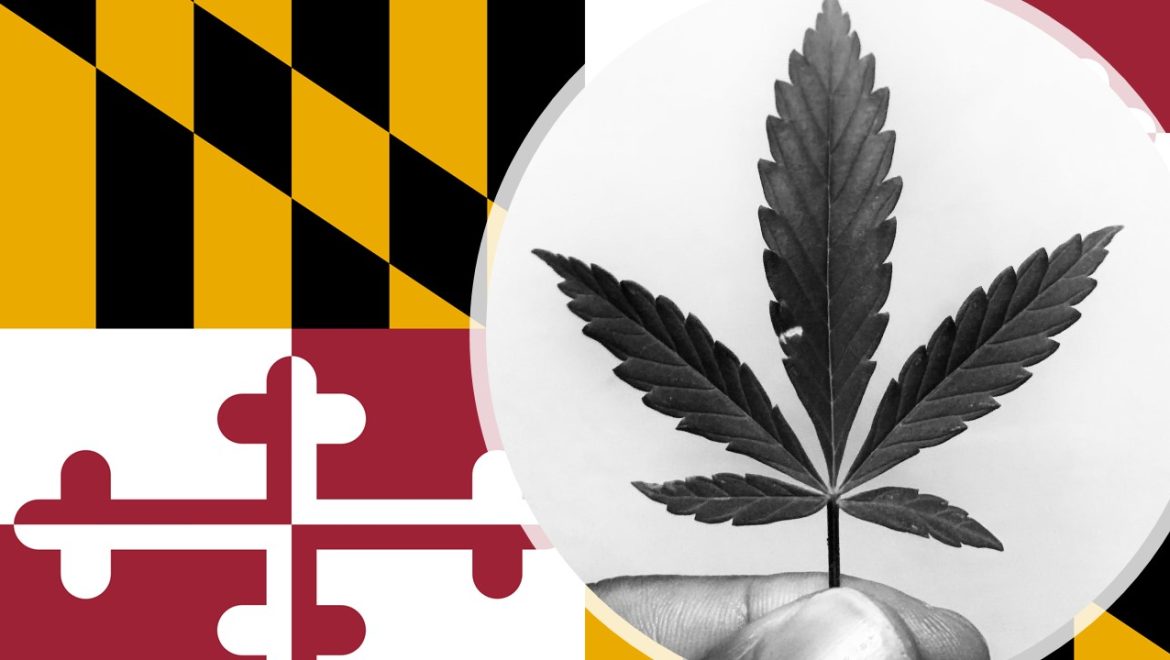
This article details everything you need to know to win a cannabis license in Maryland, including the history of legalization in the state, regulations, political environment, and future cannabis business licensing opportunities. Citizens of Maryland voted to legalize recreational cannabis in November of 2022, and many medical cannabis operators in the state made the transition to include recreational sales as of July 1st, 2023. Now, there is an active application round for additional recreational cannabis licenses, exclusive to social equity-owned businesses, with a limited number of standard- and micro-licenses for cultivators, processors, and dispensaries available. An additional recreational license application round will be held in the spring of 2024, and will include consumption lounge licenses.
Maryland Cannabis Decriminalization
History
1970
Rules set forth by Congress in the Controlled Substances Act[1] label cannabis or “marihuana” as a Schedule I substance, with no currently accepted medical use and a high potential for abuse. Maryland courts have largely abided by this Act since its inception.
1988
Baltimore Mayor Kurt Schmoke delivered an impassioned speech in favor of drug decriminalization at the annual U.S. Conference of Mayors, and later provided similar testimony to the House Select Committee on Narcotics Abuse and Control[2]. Congressman Charles Rangel said this opposition to the War on Drugs made Schmoke “the most dangerous man in America[3]” at the time. Despite naysayers at every level, including in the Reagan and H.W. Bush administrations,[4] Mayor Schmoke continued to support cannabis decriminalization over three concurrent terms, and successfully started several community drug rehabilitation programs.
2000
A four year pilot program for industrial hemp cultivation overseen by the Department of Agriculture began on July 1, 2000. The program was introduced in House Bill 1250, sponsored by Delegates Davis, Guns, Morhaim, and Baldwin[5], during the 2000 regular legislative session; the bill passed the Maryland House of Delegates on March 31st with a 128-8 vote, unanimously passed the Maryland Senate on April 2nd, and was signed into law by Governor Glendening on May 18th.
2003
Governor Ehrlich signed a bill that lessened fines for seriously ill individuals that use cannabis to relieve their pain and other symptoms, with a maximum of $100. Ehrlich was the first Republican Governor to sign legislation in support of medical marijuana, and faced significant opposition from his party and the presidential administration[6]. However, this did not create a retail framework for medical cannabis, nor did it protect individuals from arrest.
2010
Maryland has the fourth highest arrest rate in the nation for cannabis related crimes[7].
2013
Governor O’Malley signed into law[8] a medical marijuana program for Maryland in May. This allowed for academic medical centers to provide monitored care of medical marijuana patients for research as an investigational use “program” with oversight from the federal Department of Health and Human Services.
2014
House Bill 881 created the Natalie M. LaPrade Maryland Medical Cannabis Commission[9] (“the MMCC”) and allowed for the creation of a legal medical cannabis market. Senate Bill 364, proposed by Senators Robert Zirkin and Allan Kittleman and signed into law by Governor O’Malley in April 2014, changed the possession or use of less than 10 grams of marijuana to a civil rather than criminal offense.
2016
The Maryland Medical Cannabis Commission opened applications for cannabis business licenses, and received hundreds of applications. SB 517 changes possession of cannabis paraphernalia and smoking outside from a criminal activity to a civil infraction with fines.
2017
The first medical cannabis retail sales to registered patients occurs in December, and sales total over $1.8 million in the first month[10].
2018
Senator Young introduced Senate Bill 333, related to reducing the impact of 280E on licensed cannabis operators in Maryland. SB333 would create a subtraction modification for certain business expenses related to medical cannabis cultivation, processing, dispensing, and testing. The bill was cross-filed in the house, but stalled after referral to multiple committees. Maryland officials have reintroduced similar bills in each legislative session since and they have faced an identical demise.
2019
A significant decision was made in Pacheco vs State of Maryland[11] in August 2019, when the Court of Appeals decided that the smell of marijuana is not a probable cause for police to search or arrest a person, and withheld that the individual could simultaneously possess less than ten grams of cannabis without due cause to search their person, vehicle, or home.
2019
The Maryland Medical Cannabis Commission opened applications for cannabis business licenses, and received interest from hundreds of businesses[12]. Additionally, Governor Hogan signed HB 17[13] into law, legislation authorizing the manufacturing and medical sale of cannabis edible products.
2020
The Maryland Medical Cannabis Commission developed COVID emergency measures[14] that allowed licensed retailers to deliver to registered patients, and permitted curbside pickup and the use of telehealth for patient reenrollment.
2021
Delegate Jazz Lewis introduced House Bill 32 for adult-use legalization and expungement of certain prior cannabis convictions. The Maryland Center on Economic Policy created an official statement of support[15] for HB32 and testified accordingly in front of the Judiciary Committee. Senate Bill 708, which also sought adult-use legalization, was introduced in the same session by Senator Feldman. Maryland House of Delegates Speaker Adrienne Jones decided that the outcome of both bills HB32 and SB708 should be determined by voters via a referendum.
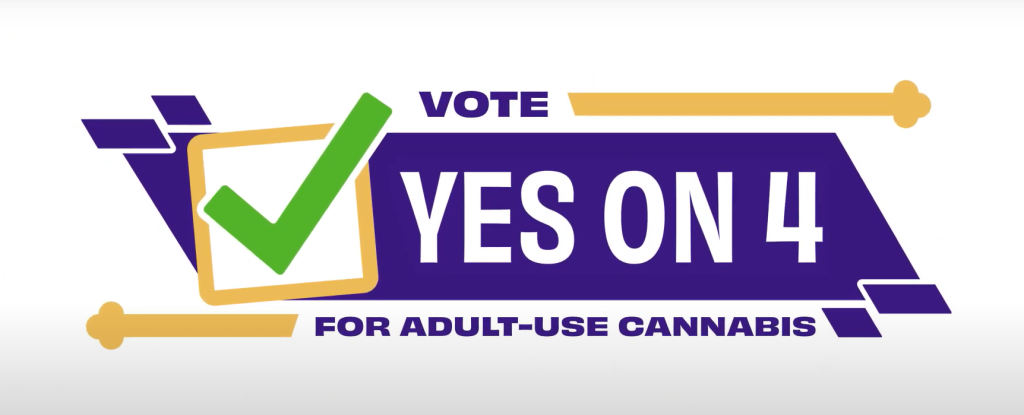
2022 campaign advertisement for adult-use cannabis legalization in Maryland
2022
House Delegate and Chairman of the Judiciary Committee Luke Clippinger introduced HB1 to allow citizen voters to decide the fate of cannabis legalization[16]. HB 837 was also proposed[17] by Delegate Clippinger and passed by the Assembly, which established the Cannabis Public Health Advisory Council and a Cannabis Public Health Fund. The bill further explicitly requires data collection and studies on cannabis use, impaired driving, and other health and safety issues. The voters of Maryland passed the referendum in November, with 67.2% in favor[18], to amend the state Constitution and allow cannabis use for all adults over the age of 21.
2023
The Cannabis Reform Act[19] was signed into law on May 3rd. This reform allows adults over 21 to possess up to 1.5 ounces of cannabis flower, 12 grams of vape products, or 750 mg THC in edible form, and each household may grow up to two plants for personal use. Possession above these amounts can result in a fine, and furthermore, possession of over 2.5 ounces of flower is criminalized. The Cannabis Reform Act also created processes for the automatic expungement of past cannabis possession convictions, and mechanisms for resentencing for the currently incarcerated. The Maryland General Assembly established rules for the recreational cannabis market, and created the Maryland Cannabis Administration to oversee the implementation, via HB 556[20] and SB 516. Governor Wes Moore signed HB232[21] into law effective July 1st, which protects parents who lawfully use cannabis from unjustified child neglect penalties.
2024
Applications for recreational cannabis business licenses will be accepted by the Maryland Cannabis Administration around May 1.
Maryland Cannabis Regulatory Entities
Individuals and groups that create laws, regulations, and rules related to cannabis include the state General Assembly and Governor, the Maryland Medical Cannabis Commission, Cannabis Public Health Advisory Board, and the Maryland Cannabis Administration. The Office of Social Equity and the Alcohol, Tobacco, and Cannabis Commission also have roles in regulation.
The General Assembly is favorable overall to cannabis reform, and allowed voters to decide the next steps for recreational cannabis. The legislature agreed in 2022 to replace all references to the term “marijuana” with “cannabis” for consistency[22]. Former Governor Larry Hogan had hesitations about cannabis, but allowed cannabis legalization bills to pass into law without his signature, nor veto. Current Governor Wes Moore has publicly stated his support for social equity measures within the cannabis industry[23]. The Governor has over $1 million worth of stock[24] in Green Thumb Industries, an active cannabis operator in Maryland and other states.
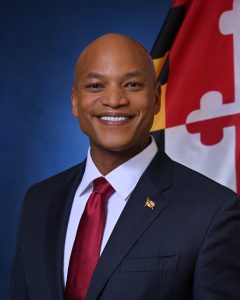
Gov. Moore has a significant personal investment in the Maryland cannabis industry
The Maryland Medical Cannabis Commission (“MMCC”) was established in 2014 to develop policies, procedures, and regulations for a safe and effective medical cannabis program. Under this program, licensed medical cannabis sales of tested products for qualified patients began on December 1, 2017. The MMCC created a home grow program for qualified patients starting in 2022 to grow cannabis plants for personal use, based on research[25] from best practices implemented in other states. Staff from the MMCC have transitioned to be a part of the Maryland Cannabis Administration, upon its inception in 2023. This is meant to provide a feeling of continuity for businesses and patients in the medical program. New regulations governing health, safety, and security of cannabis are considered supplemental to the existing medical cannabis program regulations, which will continue to be enforced.
The Cannabis Public Health Advisory Council was created by HB837 in 2022[26]. The Council has conducted studies on the public health impact of cannabis legalization in Maryland, and provides ongoing public health recommendations regarding cannabis and educational programs, advertising requirements, training for health care providers, quality control requirements, school-based prevention initiatives, youth behavioral outcomes, and other cannabis data collection. The Maryland Department of Health has a significant supportive role in the operational execution of the Council[27],[28]. The Department of Health oversees the Cannabis Public Health Fund to support Council duties and to address the community health effects associated with the legalization of adult-use cannabis. The Council consists of members appointed by the Governor[29] who serve four year terms, including a cannabis laboratory representative; a public health professional with cannabis experience; an individual with experience in health or social equity; an academic researcher with expertise in cannabis law and policy; an expert in cannabis use disorder; a substance use disorder treatment and recovery health care specialist; a pharmacist licensed in Maryland; an additional health care provider, with general experience in cannabis; a representative from the Governor’s Office of Crime Prevention, Youth, and Victim Services; and one representative from a historically black college or university; and, individuals that serve concurrently in public service positions, specifically the Secretary of the State of Maryland; the Deputy Secretary for Behavioral Health; the Secretary of Agriculture, or their designee; the executive director of the MMCC, or their designee; and, the state superintendent of schools, or their designee[30]. Members of the Council are not compensated, though travel may be reimbursed.
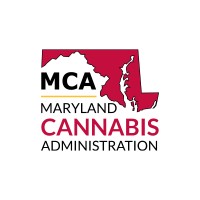
The Maryland Cannabis Administration (“MCA”) was established in 2023 as an independent agency to oversee all cannabis related licensing, registration, inspection, and testing, and to provide relevant access and educational information to patients, adult consumers, caregivers, growers, pharmacists, processors, dispensaries, testing laboratories, and other interested individuals. The stated vision of the Administration is to collaborate with stakeholders in fostering a high-quality and inclusive cannabis industry that serves as a national model. The MCA has a full time staff of 100+ people, across nine[31] departments: compliance and regulation; product testing and laboratory compliance; communications; budget and procurement; information technology; human resources; policy and government affairs; research and education; and medical cannabis registration. The MCA is currently accepting applications for recreational cannabis business licenses[32].
Maryland Medical Cannabis
Rules and Regulations
The MMCC was created in 2014 to create and oversee the medical cannabis market. There is a regulatory limit of 94 dispensary licenses allowed across the state, with up to two per Senate district. The MMCC has held multiple licensing rounds for interested applicants. The regulations for medical cannabis operations are nested within the Department of Health laws.
Previous Applications
The first application round for medical cannabis businesses was announced in September 2015. Application materials were due 40 days later, with templates provided by the MMCC. Applications were ranked based on operational readiness, procedural summaries, safety and security factors, production control, business and economic information, and additional details such as proposed products offered. Stage one conditional licenses were awarded within a year. The Commission received over 800 completed applications for prospective businesses. Ultimately, 15 cultivation and processor licenses were awarded, including seven companies that were approved to both cultivate and process cannabis. Lawsuits related to dispensary location fairness and geographic diversity were filed, ultimately resulting in certain businesses that had been denied in the first application round (including national operator Green Thumb Industries) being pre-approved for future licenses.
In 2019, the MMCC held an additional licensing application round for medical cannabis businesses, and once again received intensive interest. Applications were evaluated through a third party, and the MMCC approved final applicant rankings from third party evaluators on September 18, 2019. However, allegations of potential bias or undue influence in the license application review process were immediately voiced by multiple parties. The MMCC paused the license approval process to allow for the allegations to be reviewed. The impartiality of the application review process was investigated by Zuckerman Spaeder, LLP, and found in September 2020 that no preferential treatment was given based on bias or other undue influence[33]. A concurrent investigation from Verity, LLC, focused on the accuracy of disadvantaged ownership claims, which resulted in the denial of multiple top-ranked applications. On October 1, 2020, the MMCC awarded stage one license preapproval for three cultivators and eight processors[34], after receiving and reviewing more than 200 applications. None of the 11 originally issued 2019 licensees were operational within the regulated 12 month time period from provisional award in October 2020. Each asked for an extension, and the MMCC unanimously voted to approve extensions in September 2021.
Current Market
The first medical cannabis sales in Maryland began on December 1, 2017, with 14 cultivators, 12 processors, and nine dispensaries in the state; 550 health-care providers were registered to certify patients as eligible; and 8,500 patients were certified by the Commission to buy medical cannabis. In 2023, there are nearly 20 times as many enrolled patients, and hundreds of licensed businesses.
Licensed medical cannabis operators in good standing were given the option to also sell to recreational consumers beginning on July 1, 2023, for a fee of up to $2 million[35]. All medical cannabis licensees converted to serve both markets[36]. Notably, multi-state operators Ascend, Cannabist (formerly Columbia Care), Curaleaf, Green Thumb Industries, TerrAscend, and Verano collectively account for more than 20% of the current dispensaries in Maryland. At the onset of recreational retail, sales totaled more than $91 million[37] in August compared to $42.7 million in June from medical sales[38].
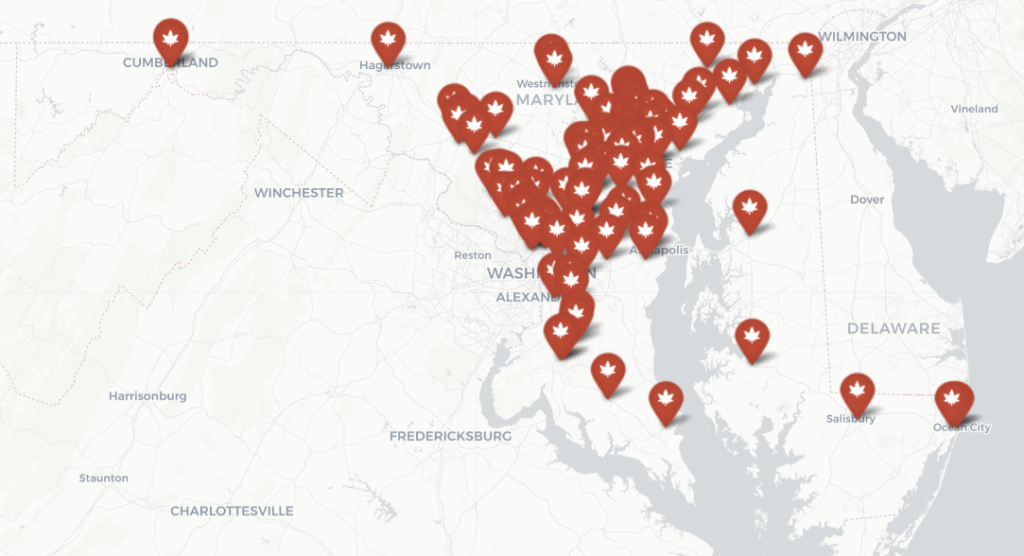
Active cannabis dispensaries in Maryland
Medical Cannabis Patients
There are more than 145,000 registered medical cannabis patients in Maryland[39] as of November 1, 2023, fewer than the year-to-date peak of 163,935 in June. Medical cannabis patients in Maryland must reside in the state and be diagnosed with a qualifying condition. Licensed medical cannabis dispensaries can deliver products to existing patients. Minors may participate in the program if they have an adult caregiver, and the caregivers must register with the MMCC prior to working with minor patients. Out-of-state residents can only participate in the medical cannabis program of Maryland if they have an inpatient stay at an accredited medical facility in the state.
Maryland uses an online patient registry, OneStop Portal[40], for initial requests, written physician certifications, and to provide patients with their registration details once approved. New submitted applications and renewals are $25, and the fee is nonrefundable[41]. Conditions that qualify for medical cannabis support include cachexia, anorexia, wasting syndrome, severe or chronic pain, severe nausea, seizures, severe or persistent muscle spasms, glaucoma, post-traumatic stress disorder (PTSD), or other chronic medical conditions that traditional treatments have been ineffective for. For registration, a valid email account is needed, as well as, a social security number, proof of Maryland residency, and government-issued photo ID. The standard certification amount of medical cannabis allowed for purchase in a rolling 30-day cycle is 120 grams of flower or 35 grams of a THC product[42], though it may vary per individual.
There are no employee protections in place for medical cannabis consumers, and employers may take action against any individual testing positive for cannabis for any reason. Additionally, most health insurance providers in Maryland will not cover medical cannabis costs.
Maryland Recreational Cannabis
Cannabis Legalization Vote
In November of 2022, Maryland voters approved legalization of adult use cannabis with a 67.2% majority[43]. This vote amended the Maryland Constitution to authorize the General Assembly to create a regulatory framework “for the use, distribution, possession, regulation, and taxation of cannabis within the state”[44], and enacted House Bill 837. HB 837 created procedures for cannabis related expungements, increased the amount of cannabis that can be legally possessed, founded the Cannabis Public Health Advisory Council, and established three distinct funds for: community reinvestment and repair, which provides money to communities disproportionately impacted by cannabis prohibition and enforcement; business assistance, to increase participation in the cannabis industry by small, minority, or women owned businesses; and a public health fund, to address community effects related to legalization of adult cannabis use, and to monetarily support the Advisory Council mission.
Adult Use Consumption
As of January 1, 2023, adults in Maryland may possess and consume a “personal use amount” of cannabis, up to: 1.5 ounces of cannabis flower, or 12 grams of concentrated cannabis, or edibles that do not exceed 750 mg THC. A criminal penalty still stands for possession of more than 2.5 ounces of cannabis, or for possession of any amount of cannabis on federal property (such as national parks or the Baltimore-Washington Parkway). Smoking cannabis or hemp is not allowed in any public spaces, including bars, sidewalks, parks, or workplaces. For Maryland residents, each household may cultivate up to two cannabis plants, regardless of how many persons over age 21 live together. The plants must be out of public view and inaccessible to minors.
On July 1st, 2023, recreational sales began in Maryland for all adult (21+) consumers, from concurrently licensed medical cannabis operators. Valid government issued ID is required for age and identity verification; individuals can only purchase up to the personal use amount. Recreational consumers[45] are not permitted to purchase concentrated products such as hash or rosin[46],[47], though vape cartridges are available[48]. Cannabis products are subject to a 9% sales tax. Retailers can sell home cultivation products to adult consumers as well as usable cannabis products. Mailing cannabis remains illegal in the United States, even between two decriminalized states, or within a legal state such as Maryland.
Recreational Cannabis Market
The Maryland General Assembly created a regulatory framework for the adult use market in their 2023 regular session, commonly referred to as the Cannabis Reform Act. The Act authorizes the MCA to issue cultivation, processor, dispensary, incubator, and consumption lounge licenses over two licensing rounds. The first licensing round is fall 2023, with all application materials due by December 12th at 5pm, and is exclusive to businesses with at least 65% social equity ownership. The second licensing round will be on or after May 1, 2024.
Standard and micro business dispensary, processor, and cultivator licenses are available for the first licensing round, with important distinctions. Micro licensees in good standing after 24 months of operation may convert to a standard license. Micro dispensaries may only offer delivery, and cannot have a brick and mortar location. Standard dispensaries must be able to accommodate medical patients, with a dedicated patients-only hour or a dedicated medical cannabis service line for all operational hours, and may not offer delivery. All standard dispensaries must therefore have a Clinical Director[49] to oversee the medical cannabis patient services[50]. Medical cannabis sold to qualified patients is exempt from sales and use tax. Micro processors can not process more than 1,000 pounds of cannabis per year, and standard processors must manufacture at least 1,000 pounds of cannabis into usable products per year. Micro cultivation licensees are permitted up to 10,000 square feet of indoor canopy, or equivalent[51], whereas standard cultivators will operate between 10,000 and 300,000 square feet of indoor canopy. Canopy is defined as the total square footage of space used to produce flowering cannabis plants, and includes each layer of flowering cannabis plants grown on any rack or shelving, and canopy does not include square footage used for mother stock; propagation; immature or nonflowering plants; processing; drying; curing; trimming[52]; storage; offices; hallways; pathways; work areas; or other administrative and nonproduction uses. Cultivators can choose indoor or outdoor canopy, or a hybrid of both. Cultivators and processors are responsible for final product packaging[53], and the state currently uses Metrc for seed-to-sale tracking.
A cannabis incubator space license allows the licensee to host a micro business within their facility. On-site consumption lounge licenses are considered a standard license type, and will not be available until the second application round. Each county and municipality must issue an explicit allowance of consumption establishments before licenses will be permitted. Consumption lounge licensees cannot cultivate cannabis; process cannabis; process cannabis-infused products; or add cannabis to foods or other items sold at the establishment. Any individual or entity with an ownership interest in or control of an on-site consumption lounge cannot have a controlling or ownership interest in any other type of cannabis license.
The maximum number of available licenses per type and per round is dictated by law; the maximum allowable licenses for the first application round (Fall 2023) is 20 standard cultivation licenses, 30 micro cultivation licenses, 40 standard processor licenses, 30 micro processor licenses, 80 standard dispensary licenses, 10 micro dispensary licenses, and 10 licensed incubator spaces. The MCA may offer even fewer licenses in a given round, and reserves the right to deny any application that is not complete in every material detail[54]. If there are more qualified applications than the number of licenses available in a round, all qualified applicants will be placed in a lottery to select the winners. The first application round is reserved for social equity applicants.
Medical Cannabis Conversion to Recreational Market
The Cannabis Reform Act authorized existing licensed medical dispensaries to convert their licenses for dual medical and adult-use sales before July 1. More than 100 businesses[55] have chosen to transition to include recreational sales in their operations, including multi-state operators. Each cannabis dispensary must provide patient-only operating hours, or dedicate a service line exclusively for patients during all operating hours. Maryland does not offer medical cannabis reciprocity, so out of state cannabis patients must shop recreationally, and cannot access patient only hours, patient lines, or medical grade products.
Social Equity Cannabis License Applicants
The Cannabis Reform Act created an Office of Social Equity specifically to assist social equity applicants and small, minority, and women-owned businesses with applications and business financing. The legislation has additional measures intended to support social equity, such as exclusive social equity applicant licensing rounds, access to grants, prohibition of application property requirements, and the creation of new license categories that require less capital to operationalize.
To qualify as a social equity applicant in Maryland, you must have lived in a disproportionately impacted area for at least 5 of the past 10 years, defined as an area that had above 150% of the state’s 10-year average for cannabis possession charges; or, attended a public school in a disproportionately impacted area for at least 5 years; or, attended, for at least two years, a 4-year institution of higher education in the State where at least 40% of the individuals who attended the institution are eligible for a Pell grant.
The first round of recreational cannabis business applications from the MCA is exclusively for social equity applicants. The second round of applications will likely have a small number of licenses available for general applicants. To determine how many additional social equity licenses should be awarded in round two of applications the MCA will conduct a study of active operators, in consultation with the Maryland General Assembly; Governor’s Office of Small, Minority, and Women Business Affairs; and the Office of the Maryland Attorney General.
The Cannabis Business Assistance Fund in the Department of Commerce is set up as a nonlapsing fund[56] operated by the Maryland Department of Commerce to provide financial assistance to small, minority, and women-owned businesses entering the adult-use cannabis industry[57]. Currently, expenses for outside assistance and consultation that an individual needs to complete their application can be up to 50% reimbursable through a grant, up to $5,000.
Fall 2023 Maryland Cannabis License Application
Critical Application Steps
- Complete the MCA interest form and quiz[58] before November 6th, to confirm that all parties understand the application process.
- Verify social equity status with Creative Services, Inc (“CSI”) before November 7th[59],[60].
- Apply and receive a business registration number from the Maryland Department of Assessments and Taxation.
- Submit license application materials by 5pm EST on December 12 through the OneStop portal. All fees must be paid for an application to be considered complete.
Ownership Requirements
For this application round, all businesses must have at least 65% ownership by social equity individuals; multiple individuals can cooperate and co-own a business to total 65%. Individual social equity status must have been verified through a third party portal prior to November 7th, 2023. Anyone that has not verified their social equity status in advance may not apply for more than 35% ownership in this application round. Nearly 900 individuals have been successfully verified as social equity applicants[61].
The Office of Social Equity defined the specific qualifiers of social equity with the identification of Bowie State University, Coppin State University, Morgan State University, University of Baltimore, University of Maryland Eastern Shore, and Washington Adventist University as higher education institutions where at least 40% of the attendees are eligible for a Pell grant; publication of a 19 page list of schools[62] where attendance of more than five years qualifies; and the zip codes[63] that have been disproportionately impacted by cannabis charges for the five year residency requirement.
Individuals from similarly impacted areas from other states can also qualify as social equity applicants for this licensing round – technically. However, clear guidance has been difficult to find, and the MCA believes that the burden for proof of qualifications is the sole responsibility of the applicant, not the Administration. Reportedly, multiple out-of-state applicants that qualify in their home state as social equity applicants have failed to verify in Maryland, which may result in related lawsuits. Any lawsuits raised against the MCA may increase the time before additional license application rounds.
Technical Details
An individual may be associated with one application per license type, and up to two total applications in a given round. Ownership interest forms and background check investigations are required, along with a business capitalization table totalling 100% that includes explicit disclosures of any other entities associated with any ownership shares. Additionally, each business must meet social equity requirements, register with the Maryland Department of Assessments and Taxation, and pay a nonrefundable fee to the MCA. Fees are $5,000 for standard business applications, and $1,000 for microbusiness applicants.
A person or entity may not have control[64] of or ownership interest in more than one cannabis grower license (standard or micro); and one cannabis processor license (standard or micro); and four cannabis dispensary licenses (standard or micro)[65]. Any individual or entity with an ownership interest in or control of an on-site consumption lounge can not have a controlling or ownership interest in any other type of cannabis license.
The licenses available in this round are 16 standard cultivation licenses, 32 standard processor licenses, 75 standard dispensary licenses, 24 micro cultivation licenses, 24 micro processor licenses, and 8 micro dispensary licenses. These licenses will be further divided by counties and regions, based on the historic impact of the War on Drugs in each community. Applicants do not need to have a property lease or site control. However, each license is tied to the area of intended operation declared on the application.
Standard Dispensary licenses will be dispersed by county:
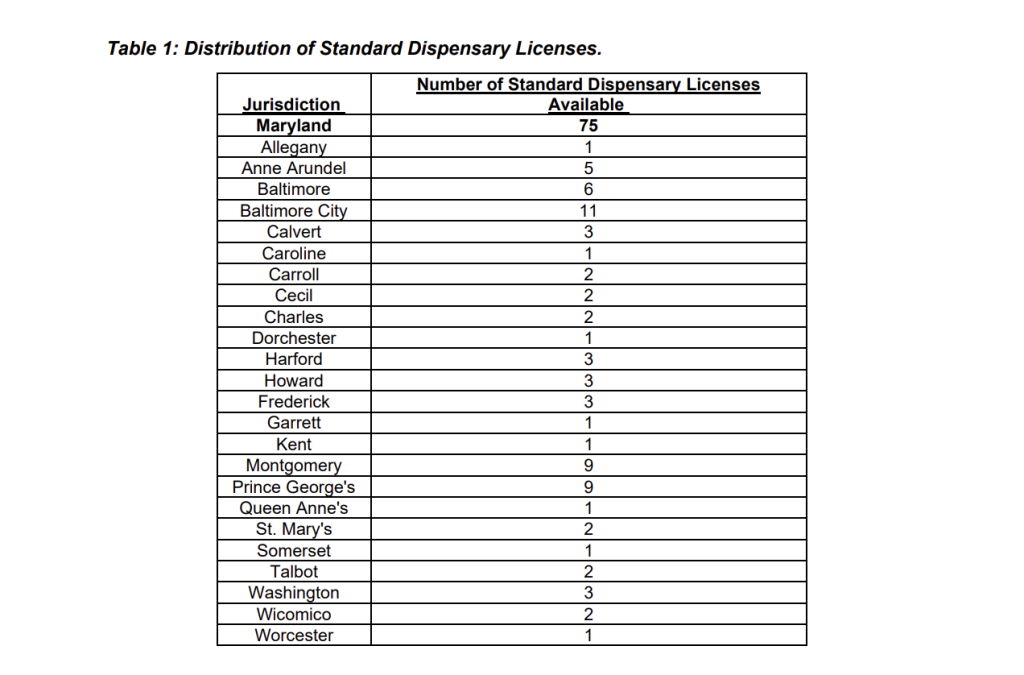
Processor, cultivator, and micro dispensary licenses will be distributed by region; the western region includes Allegany, Carroll, Frederick, Garrett, Montgomery, and Washington; the southern region includes Anne Arundel, Calvert, Charles, Prince George’s, and St. Mary’s; the central region includes Baltimore, Baltimore City, Cecil, Harford, and Howard; and the eastern region includes Caroline, Dorchester, Kent, Queen Anne’s, Somerset, Talbot, Wicomico, and Worcester. Per region, 4 standard cultivation, 8 standard processor, 6 micro cultivation, 6 micro processor, and 2 micro dispensary licenses will be awarded[66].
All applicants are expected to be familiar with the laws and regulations governing cannabis in Maryland. To confirm that all parties understand the application process, each individual must complete an MCA Cannabis Business Interest Form and Quiz before November 6th. More than 3,000 people expressed interest through completion of this form.[67] All interested parties must complete their social equity verification process before November 7th to move forward with the application. For verification, all interested parties must submit the appropriate paperwork through a third party portal, accessed via a unique link sent in an email upon completion of the MCA Interest Form and Quiz.
Each application must include redacted and unredacted copies of an operational plan, business plan, and diversity plan. The MCA has specific templates and page restrictions for all materials, and all responses must be in 12-point Times New Roman font. The operational plan template “Attachment A” has nine prompts with short response boxes to confirm that regulatory compliant documentation will be created by the applicant regarding workplace safety, emergency protocols, sanitary practices, storage procedures, security protocols, and additional safety procedures[68] upon conditional license award. The business plan template “Attachment B”[69] has space to describe funding intentions and timeline; proposed premises and zoning compliance actions; lists of all principal officers; and an overview of business success factors, including past applicant experience; the maximum allowable space is 11 total pages. The diversity plan template “Attachment C” provides one page each to explain the business diversity goals, related action plan, how the business defines diverse participants, and overall outreach plans[70]. Application materials must be submitted in the OneStop portal during the “application period” beginning on November 13th and ending promptly at 5pm on December 12th for consideration. The portal will require the applicant to attest to the accuracy of materials, give consent to background investigations, and all required attachments to be uploaded, before submission can occur[71]. All submissions are immediately considered property of the MCA and will not be returned[72].
If applicants do not meet the minimum requirements of the lottery, they will be informed by the MCA, then given ten days to request a records review, to confirm the insufficiency. Further grounds for denial or disqualification include incomplete application sections, duplicate applications, ownership conflicts, lies, misrepresentations, alteration of application templates, omissions, or a failure to turn an application in on time (5pm on Tuesday, December 12th, 2023).
The MCA will notify applicants of their individual outcome on or before January 1, 2024. Applicants selected from the lottery can receive a conditional license[73], valid for 18 months, to identify a location and establish control; submit additional verification materials, as needed; raise funds; obtain zoning and planning approval; obtain local approval; and pass all health, safety, and security inspections, including inspections from the MCA. Ownership or control cannot be changed during conditional licensure. Conditional licensees may not begin cultivation, manufacturing, selling, or possessing of cannabis products until given final approval and a license award from the Administration.
Lack of timely public awareness for business registration requirements may lead to legal battles. The MCA[74] advised Maryland residents against certain partnership opportunity advertisements. The MCA regulations[75] related to the application process and issuance of licenses have set the expectation that applicants could complete their business registration after the lottery process, if awarded a conditional license. However, the general instructions for application released by the MCA[76] in October states that an application must include a registration number from the State Department of Assessments and Taxation; this registration number must match the application information and be specific to the prospective cannabis business licensee.
Conclusion
In addition to carefully reviewing this living document, understanding the statutes, regulations, and ordinances governing the location and activity of cannabis businesses is essential to becoming operational and subsequently maintaining compliance in the Old Line State. Winning a cannabis license in Maryland is challenging, but not impossible with the right preparation and commitment. For industry-insider support, application development, team building, and connection to potential partners and investors, Contact Cannabis Consultants Group. We also recommend reviewing the citations below:
REFERENCES:
[1] US Controlled Substances Act. 21 U.S.C. § 812(c). https://uscode.house.gov/view.xhtml?req=(title:21%20section:812%20edition:prelim)
[2] Baltimore Magazine. Cassie, Ron. April 2018. Back to the Future: Kurt Schmoke. https://www.baltimoremagazine.com/section/health/thirty-years-ago-kurt-schmoke-openly-advocating-for-decriminalization-of-marijuana/
[3] Yale Magazine. Fellman, Bruce. November 2000. Powerful Persuader: Kurt Schmoke. http://archives.yalealumnimagazine.com/issues/00_11/schmoke.html
[4] The Baltimore Sun. Banisky, Sandy; Bich, Doug. April 1988. Schmoke’s Drug Idea Stirs Opposition. https://baltimoresun.newspapers.com/clip/92116930/
[5] Maryland Legislature Archives. 2000 Regular Session. House Bill 1250. https://mgaleg.maryland.gov/2000rs/billfile/hb1250.h
[6] NORML. May 2003. Maryland Medical Marijuana Defense Measure Becomes Law. https://norml.org/news/2003/05/22/maryland-medical-marijuana-defense-measure-becomes-law/
[7] ACLU Press Release: In Maryland, Black People Found to Be 3 Times More Likely To Be Arrested For Marijuana Possession Than White People, Despite Equal Usage Rates. https://www.aclu.org/press-releases/maryland-black-people-found-be-3-times-more-likely-be-arrested-marijuana-possession#:~:text=According%20to%20the%20report%2C%20Maryland,whopping%2023%2C663%20arrests%20in%202010.
[8] Maryland Legislature. 2013. House Bill 1101. https://legiscan.com/MD/bill/HB1101/2013
[9] Maryland Legislature. 2014. House Bill 881. https://mgaleg.maryland.gov/2014RS/Chapters_noln/CH_240_hb0881e.pdf
[10] Maryland Medical Cannabis Commission. Medical Dispensary Sales per Month.
[11] Maryland Courts. 2019. Michael Pacheco v. State of Maryland. https://www.courts.state.md.us/data/opinions/coa/2019/17a18.pdf
[12] Baltimore Sun. May 2019. Maryland’s Plan to Diversify Medical Cannabis Licenses. https://www.baltimoresun.com/business/bs-md-cannabis-licenses-20190528-story.html
[13] Maryland Legislature. HB 17. 2019. https://mgaleg.maryland.gov/mgawebsite/legislation/details/hb0017?ys=2019rs
[14] MMCC. COVID-19 Updates. https://mmcc.maryland.gov/Pages/MMCC_COVID_19_updates.aspx
[15] Maryland Center on Economic Policy. February 2021. Testimony: Position Statement Supporting House Bill 32. https://mgaleg.maryland.gov/cmte_testimony/2021/jud/1039T7h8U-HXp0OmC5sN8dN5hAtpGODz3.pdf
[16] Maryland Legislature. Delegate Clippinger. House Bill 1. https://mgaleg.maryland.gov/2022RS/bills/hb/hb0001E.pdf
[17] Maryland Legislature. Delegate Clippinger. HB 837 Proposal. https://mgaleg.maryland.gov/2022RS/bills/hb/hb0837f.pdf
[18] Maryland State Board of Elections. 2022. Question 4: Constitutional Amendment Cannabis – Legalization of Adult Use and Possession. Results. https://elections.maryland.gov/elections/2022/general_results/gen_detail_qresults_2022_4_1.html
[19] Maryland Legislature. HB 0556 and CH 0254. The Cannabis Reform Act. May 2023. https://mgaleg.maryland.gov/mgawebsite/Legislation/Details/hb0556
[20] HB 556. https://mgaleg.maryland.gov/mgawebsite/Legislation/Details/hb0556
[21] Maryland Legislature. HB 232. https://mgaleg.maryland.gov/mgawebsite/Legislation/Details/HB0232?ys=2023RS
[22] HB 837 §9. https://mgaleg.maryland.gov/2022RS/bills/hb/hb0837f.pdf
[23] Office of the Governor. June 2023. Governor Moore Reinforces Commitment to Promoting Social Equity and Restorative Justice as Adult Recreational Use Cannabis Market Set to Go Live July 1. https://governor.maryland.gov/news/press/pages/governor-moore-reinforces-commitment-to-promoting-social-equity-and-restorative-justice-as-adult-recreational-use-cannabis.aspx
[24] AP News. White, Brian. May 2023. About 46% of Gov. Wes Moore’s Blind Trust in Cannabis Stock. https://apnews.com/article/maryland-governor-blind-trust-cannabis-9d1ea4c2ae97c76c453b5bd4496744c7
[25] HB 837 §8(a-b). https://mgaleg.maryland.gov/2022RS/bills/hb/hb0837f.pdf
[26] Maryland Legislature. HB 837. https://mgaleg.maryland.gov/2022RS/bills/hb/hb0837f.pdf
[27] Maryland Department of Health. January 2023. Maryland Cannabis Public Health Advisory Council Information Page. https://health.maryland.gov/phpa/ohpetup/Pages/Cannabis-Advisory-Council.aspx
[28] HB 837 §13-4503(F). https://mgaleg.maryland.gov/2022RS/bills/hb/hb0837f.pdf
[29] HB 837 §13-4502(B)(6)(I-X). Governor Appointees. https://mgaleg.maryland.gov/2022RS/bills/hb/hb0837f.pdf
[30] HB 837 §13-4502(B)(1-5). The Advisory Council Members. https://mgaleg.maryland.gov/2022RS/bills/hb/hb0837f.pdf
[31] Maryland Cannabis Administration. About Us. 2023. https://mmcc.maryland.gov/Pages/aboutus.aspx
[32] Maryland Cannabis Administration. News Release. September 2023. First Application Round for Cannabis Business Licenses. https://mmcc.maryland.gov/Documents/2023%20_PDF_Files/News%20Release/MCA%20Application%20Announcement%20%28Sept.%208%2c%202023%29%20%281%29%20%282%29.pdf
[33] Zuckerman Spaeder, LLP. Report to MMCC on Investigation of Potential Bias in the Application Review Process. https://mmcc.maryland.gov/Documents/2020-09-03%20Final%20MMCC%20Report.pdf
[34] Maryland Medical Cannabis Commission. News Release. October 2020. MMCC Announces Grower and Processor License Preapprovals. https://mmcc.maryland.gov/Documents/2019_2020%20Press%20Releases/MMCC%20Awards%20Grower%20and%20Processor%20Preapprovals%20%28Oct.%201%2c%202020%29.pdf
[35] Md. Code, Alco. Bev. §36-403(a)(2)(i). Conversion Fee.
[36] MCA. Approved Dispensaries. November 2023. Markets Served.. https://mmcc.maryland.gov/Pages/dispensary_map.aspx
[37] Green Market Report. Adam Jackson. September 2023. Maryland Adult-Use Cannabis Rollout as Model Success. https://www.greenmarketreport.com/marylands-adult-use-cannabis-rollout-heralded-as-model-success/#:~:text=Maryland’s%20adult%2Duse%20launch%20stands,and%20an%20upward%20price%20trend
[38] Zuanic Associates. September 2023. MD Brand Share Trends Cannabis Sector Equity Reserach. https://zuanic.worldflowconnect.net/opendirect/7b1c49db-b50b-40e3-9117-865ac0ecab08/230913%20MD%20Wholesale.pdf?token=1147d8c0-a69e-49ed-91c2-7abeac6f62a1&extension=.pdf
[39] MMCC. Bi-weekly Certified Patient Count – 2023. https://mmcc.maryland.gov/Documents/2023%20_PDF_Files/Retail%20Sales%20Data/October%202023/Patient_Bi-weekly_count.pdf
[40] MCA. OneStep Portal Info Page. https://mmcc.maryland.gov/Pages/Maryland-OneStop-Portal.aspx
[41] MCA. Registration for Adult Patients. https://mmcc.maryland.gov/Pages/patients_regisadult.aspx
[42] MCA. Medical Cannabis Purchasing Limits. https://mmcc.maryland.gov/Documents/Rules%20for%20Purchasing%20Limits.pdf
[43] Maryland State Board of Elections. 2022. Question 4: Constitutional Amendment Cannabis – Legalization of Adult Use and Possession. Results. https://elections.maryland.gov/elections/2022/general_results/gen_detail_qresults_2022_4_1.html
[44] Maryland Constitution. Article XX. Adopted. https://mgaleg.maryland.gov/2022RS/bills/hb/hb0001t.pdf
[45] COMAR §14.17.04.05.
[46] MCA Medical Cannabis Licensed Processor Guidance. August 2023. Product Reservations. https://mmcc.maryland.gov/Documents/2023%20_PDF_Files/Laws%20and%20Regulations/Guidance%20Document%20Updates/8.24.23%20Version%20Processor%20Guidance.pdf
[47] COMAR §14.17.13.03.
[48] Maryland Cannabis Administration 2023 Regulations Q&A Webinar. https://mmcc.maryland.gov/Documents/2023%20_PDF_Files/Laws%20and%20Regulations/Webinar/Regulations%20Q%26A%20Webinar%20(3).pdf
[49] MMCC. 2021. MMCC Guidance: Clinical Director Requirements. https://mmcc.maryland.gov/Documents/2021_Policy_Regulations/Clinical_Director_Requirement_Guidance-UPDATED_2.12.2021.pdf
[50] COMAR §14.17.04.09.
[51] Md. Code Ann. §36-401(c)(1)(i); §36-401(c)(2)(i).
[52] COMAR §14.17.01.01(8)(a-c)
[53] COMAR §14.17.18
[54] Maryland Register. 2023. COMAR. Application Process and Issuance of Licenses. 14.17.05.03(E)(2)(a)(i). https://mmcc.maryland.gov/Documents/2023%20_PDF_Files/Laws%20and%20Regulations/Issue%2014%20(07-14-2023)%20(1).pdf
[55] Maryland Cannabis Administration. List of Licensees for Adult Consumer Conversion. June 2023. https://mmcc.maryland.gov/Documents/2023%20_PDF_Files/Adult-Use%20Cannabis%20Legalization/Current%20List%20of%20Paid%20Conversions%20(1)%20(1).pdf
[56] HB 837 §13–4505. Section on Cannabis Public Health Fund. https://mgaleg.maryland.gov/2022RS/bills/hb/hb0837f.pdf
[57] Maryland Department of Commerce. Cannabis Business Assistance Fund. https://commerce.maryland.gov/fund/programs-for-businesses/cannabis-business-assistance-fund
[58] MCA. September 2023. Cannabis Business Licensing Interest Form. https://docs.google.com/forms/d/e/1FAIpQLSc2pPf8C6_dBQvj65LUrcPveM7xNxGB5uk9-abEMM19oBSteg/viewform
[59] MCA. September 2023. Social Equity Verification Process – Detailed Explainer (English). https://mmcc.maryland.gov/Documents/2023%20Social%20Equity%20Verification/Social%20Equity%20Verification%20Process%20-%20Detailed%20Explainer%20(1).pdf
[60] MCA. September 2023. Verificación de Aplicantes de Equidad Social. https://mmcc.maryland.gov/Documents/2023%20Social%20Equity%20Verification/%237-Verification%20Process%20-%20Detailed%20Explainer_SP_9.2023.pdf
[61] MCA. November 2023. Social Equity Verification. https://mmcc.maryland.gov/Pages/Social-Equity-Verification.aspx
[62] MCA Disproportionately Impacted Areas – Public Schools. https://ose.maryland.gov/Documents/2023%20Licensing%20and%20Eligibility/Disproportionately%20Impacted%20Areas%20-%20Open%20Public%20Schools%20(08-31-23).pdf?utm_medium=email&utm_source=govdelivery
[63] MCA. Disproportionately Impacted Areas – Cannabis Charges by Zip and County. https://ose.maryland.gov/Documents/2023%20Licensing%20and%20Eligibility/SocialEquityCriteria_Dispro_Impact_Areas-HR1%20(1).pdf?utm_medium=email&utm_source=govdelivery
[64] MCA Ownership and Control Restrictions. August 2023 Update. https://mmcc.maryland.gov/Documents/2023%20_PDF_Files/Laws%20and%20Regulations/Guidance%20Document%20Updates/8.24.23%20update%20Transfer%20of%20Ownership,%20All%20Licensee.pdf
[65] MD Code, Alcoholic Beverages – Cannabis §36-401(e). https://casetext.com/statute/code-of-maryland/article-alcoholic-beverages/division-iii-cannabis/title-36-medical-and-adult-use-cannabis/subtitle-4-cannabis-licensing/section-36-401-licensing
[66] MCA. Maryland Cannabis Administration Announces First Application Round for Cannabis Business Licenses. https://mmcc.maryland.gov/Documents/2023%20_PDF_Files/News%20Release/MCA%20Application%20Announcement%20%28Sept.%208%2c%202023%29%20%281%29%20%282%29.pdf
[67] MCA. November 2023. Social Equity Verification. https://mmcc.maryland.gov/Pages/Social-Equity-Verification.aspx
[68] MCA. Fall 2023 Application. Attachment A – Operational Plan. https://mmcc.maryland.gov/Documents/2023%20_PDF_Files/Cannabis%20Business%20Licensing/Attachment%20A-Operational%20Plan%20Template-Form%20Fill.pdf
[69] MCA Fall 2023 Application. Attachment B – Business Plan. https://mmcc.maryland.gov/Documents/2023%20_PDF_Files/Cannabis%20Business%20Licensing/Attachment%20B-Business%20Plan%20Template-Form%20Fill_10.19.pdf
[70] MCA. Fall 2023 Application. Attachment C – Detailed Diversity Plan. https://mmcc.maryland.gov/Documents/2023%20_PDF_Files/Cannabis%20Business%20Licensing/Attachment%20C-Detailed%20Diversity%20Plan%20Template-Form%20Fill.pdf
[71] Maryland Cannabis Administration. Cannabis License Application – General Instructions. Section II, Part C-D. https://mmcc.maryland.gov/Documents/2023%20Social%20Equity%20Verification/10.17-MCA%20Application%20-%20General%20Instructions%20%282023%29_For%20Distribution.pdf
[72] MCA. Cannabis License Application – General Instructions. Section VII. Ibid.
[73] Maryland Registrar. July 2023. COMAR §14.17.05.04.
[74] MCA. 2023. News Release. Potentially Fraudulent Mailer Warning. https://mmcc.maryland.gov/Documents/2023%20_PDF_Files/News%20Release/Potentially%20Fraudlent%20Mailer%20Warning%20MCA.pdf
[75] COMAR §14.17.05.05(A)(4)(d). Conditional License Period. Register with the State Department of Assessment and Taxation. https://casetext.com/regulation/maryland-administrative-code/title-14-independent-agencies/subtitle-17-maryland-cannabis-administration/chapter-141705-effective-until-6302024-application-process-and-issuance-of-licenses/section-14170505-effective-until-6302024-issuance-of-a-license-or-rescission-of-a-conditional-license
[76] MCA. Application – General Instructions. October 2023. https://mmcc.maryland.gov/Documents/2023%20Social%20Equity%20Verification/10.17-MCA%20Application%20-%20General%20Instructions%20%282023%29_For%20Distribution.pdf
Cannabis leaf in feature image courtesy of Everton Nobrega.
A highly skilled data scientist and cannabis finance specialist, Jackie’s experience has roots in the legal cannabis environment of Oregon, where she worked with cannabis product formulations, and was an original proponent of Proposition 502 in Washington state, which legalized recreational cannabis. As an industry-based CPA, Jackie is extremely well-versed in cannabis finance, and works with complex financial models and budgeting for all types of cannabis businesses. Jackie is also an astute legal researcher and master of data compilation and analysis, as well as possessing significant editing, proofreading, and compliance management skills.

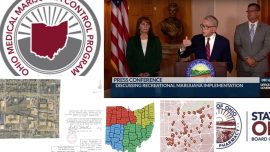

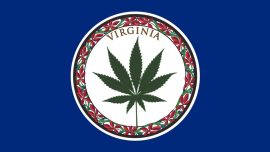

0 comments
Write a comment